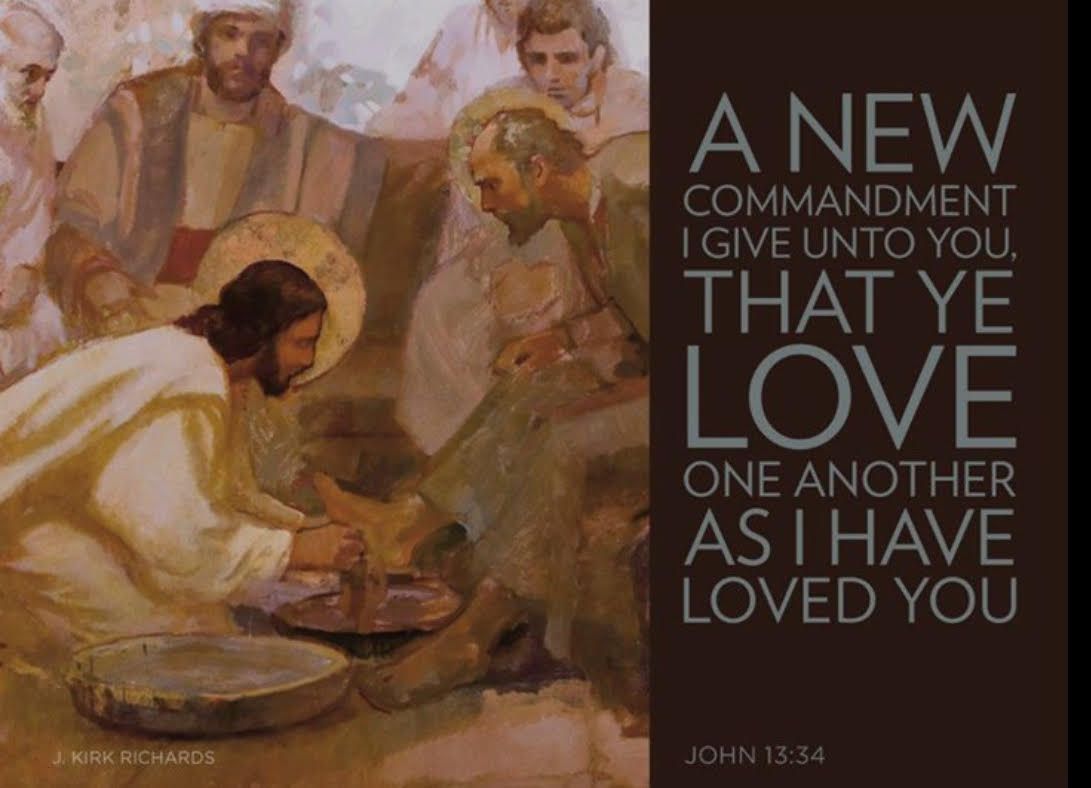5th Sunday of Easter
May 16, 2025
Gospel Reflection
John 13:31-33,34-35

The words of Jesus contained in today’s Gospel passage are among the most quoted of our Saviour’s teachings and tend both to fill people with admiration and challenge Christians in their daily lives. They are often compared with other words from the Old Testament which Jesus himself referred to: “Love your neighbour as yourself: I am the Lord” (Leviticus 19:18). The latter have come to be known as the “Great Commandment.” The teaching is easily understood, even if not so easily or often put into practice. However, Jesus’ words in what we call “the New Commandment” that we love one another as he has loved us—are even more challenging and for that reason also more inspiring for persons of faith.
To love one another as Christ has loved us is what we have been called to do. Jesus laid
down his life for us. He loved without experiencing great consolation, or an equal return of what he gave. He loved us from the Cross where both men and women conspired to confine him. In other words, Jesus loved unselfishly—he loved us truly, sincerely and completely because he wanted our eternal happiness over his own safety, his own possessions, his own freedom from pain and suffering, his own prestige, his own triumph over his enemies— for whose forgiveness he actually prayed.
Such is the high goal that the “New Commandment” presents. It is not a goal that is easily reached, yet it is one that the grace of God enables us to move towards and sooner or later achieve. Our capacity to love – in Christ—is, in a sense, limitless. The example of the Virgin Mary shows this. She truly shared in the divine love with which Christ loves each and every person in this world. For that reason we see her not only as the Mother of Jesus, but our Mother as well. She too, in union with her Son, made the great sacrifice of all that was most precious to her for the salvation of the world.
What can we say about ourselves in the light of these considerations. We are likely to see
much selfishness, much pettiness, resentments towards others, injuries frequently dwelled upon, lacks of generosity in attending to other people’s needs, perhaps even a reluctance to extend the hand of friendship, a rapid tendency to find fault or to be mastered by irrational antipathies. Such signs of our human weakness and self-centeredness need to be countered by prayer and a more sincere approach to the sacraments of the Eucharist and confession. It is a lifelong project to purify one’s sentiments and to learn to love as Jesus loved, - and loves! This project is identical to that of our sanctification – our preparation to enter into eternal life and happiness. The sacraments and prayer are the means God asks us to employ in this project, which is, first and foremost, his project, in which we are called to cooperate.
In the seconding reading St John speaks of his vision of heaven, seen as the new and
definitive Jerusalem, that is to say, the dwelling place of both God and his people. What is essential to this city is not location or physical boundaries, but the love that unites all its citizens with their Creator and Father, and simultaneously with each other. How beautiful will be this immediate experience of God! How great the joy stemming from the clear-cut evidence of being loved and knowing how to love – to give and give oneself - in return. In the measure in which we come to live the “New Commandment”.


